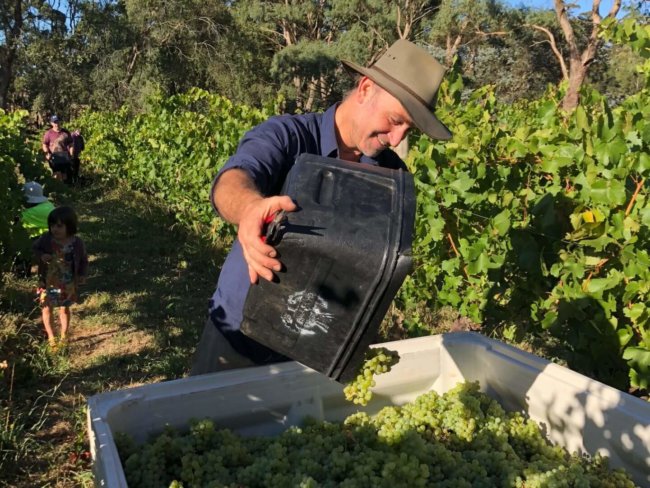Hugh McCullough’s Wellington & Wolfe label (named after the famous British generals) is a nod to a career in history left to gather dust while he forged ahead with an all-consuming love of wine. That love is democratic, with McCullough personally embracing all styles, but he has a special passion for riesling, and his Tamar and Pipers River project focuses on the one grape that fascinates him above all. Starting in 2017 with a frugal batch of fruit, McCullough now makes two rieslings for Wellington & Wolfe. The wines see plenty of skin and lees contact and are partially barrel fermented, though they are marked by underlying purity and drive.
Born in the UK, McCullough has a master’s degree in modern history from St Andrews University in Scotland, with a focus on 18th and 19th century colonial expansion. While funding his studies with hospitality work, he rather fell for wine, and was forever diverted, culminating in his master’s in viticulture and oenology in 2019, with a focus on sparkling and aromatic white production. Aside from Tasmania, McCullough has worked vintages in the USA, in Washington State and Oregon, and in the Barossa Valley. With the encouragement of his partner, Natalie Fryar (of Bellebonne), he launched Wellington & Wolfe with just the one wine.
McCullough’s first wine was a 2017 Riesling from Pipers River. He only had a tick over a tonne of fruit, and it was too meagre a harvest to fit in the press of the winery he was renting space in. So, the process ended up being very manual, with a basket press and plenty of foot treading doing the work. This oxidative process with plenty of skin contact was a revelation. “As a result, I learned to never be afraid of skin contact to build flavour, as long as I am there to taste it throughout,” he says.
That first experiment led to a very distinctive approach for the Wellington & Wolfe label, with the fruit all having this oxidative approach at the start, with a measure of skin contact. They are then fermented with indigenous yeasts, with a portion in barrel. The lees are kept heavy and the wines go to bottled un-fined and unfiltered, and are bone dry.
“Riesling has been made for thousands of years – there’s so much tradition, but equally so much innovation and so many styles. With Wellington & Wolfe, I want to push the boat out and make my mark, without throwing out what has come before me. The next release on the cards is a true Kabinett-style off-dry riesling from Pipers River, but I’m not sure when, it’s a work in progress!” says McCullough.





